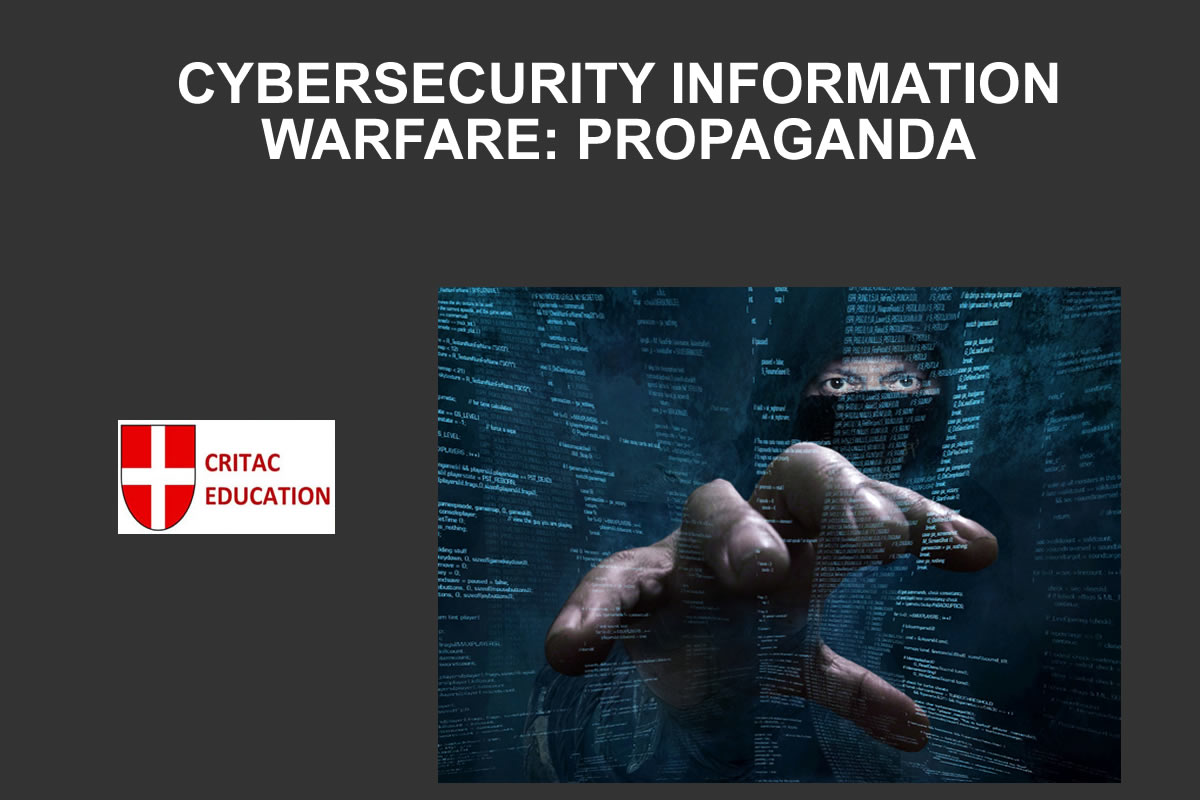"Propaganda in Cybersecurity" provides an in-depth exploration of the interplay between cybersecurity and propaganda, offering insights into historical contexts, key terminology, and crucial concepts. This module-based course examines propaganda fundamentals, its evolution in the digital age, and its integration into cybersecurity threats and attacks.
Key Features:
1. Introduction to Cybersecurity Information Warfare:
- Define the interplay between cybersecurity and propaganda.
- Explore the historical context and significance of their convergence.
- Understand key terminology and foundational concepts.
2. Propaganda Fundamentals:
- Gain a comprehensive understanding of propaganda, including definitions and theories.
- Examine historical examples and modern forms and techniques.
3. Evolution of Propaganda in the Digital Age:
- Explore propaganda in the digital era, with case studies on disinformation in elections and the role of the internet and social media.
- Analyze the power of targeted messaging through the case study of micro-targeting in the 2016 US Presidential Election.
4. Propaganda and Psychological Manipulation:
- Delve into the psychology of persuasion, cognitive biases, and behavioral manipulation.
- Investigate real-world cases, such as the tobacco industry marketing to youth and misinformation campaigns related to COVID-19 vaccinations.
5. Cybersecurity Threat Landscape:
- Assess current cybersecurity challenges, threat actors, and their motivations.
- Examine vulnerabilities and attack vectors using case studies like the APT41 cyber espionage campaign and the Equifax data breach.
6. Propaganda in Cyber Attacks:
- Explore propaganda as a tactic in cyber warfare, with case studies illustrating cyber attacks using propaganda techniques.
- Discuss the implications and countermeasures.
7. Social Media as a Propaganda Platform:
- Investigate social media's role in propaganda, with a focus on the Cambridge Analytica scandal and amplification of messages.
- Analyze challenges in detection and mitigation using case studies like the "Pizzagate" conspiracy theory and the COVID-19 infodemic.
8. Deepfakes and Synthetic Media:
- Examine the emergence of deepfakes and their use in manipulated media.
- Discuss political and social implications, countermeasures, and detection challenges using case studies like deepfake videos of Belgian politicians and the "Nancy Pelosi" incident.
9. State-Sponsored Propaganda and Cyber Operations:
- Identify nation-state actors and their propaganda efforts, including a case study on alleged Russian interference in the 2016 US Presidential Election.
- Analyze influence campaigns in geopolitical contexts, such as China's Belt and Road Initiative.
10. Non-State Actors and Propaganda Campaigns:
- Examine propaganda efforts by extremist groups and hacktivists, exploring disinformation ecosystems and case studies like Anonymous vs. Church of Scientology.
Who This Module Is For:
- Cybersecurity Professionals: Seeking an understanding of propaganda's role in cyber threats.
- Communication Specialists: Interested in the intersection of cybersecurity and propaganda.
- Policymakers: Formulating strategies for addressing propaganda in the cybersecurity landscape.
- Students: Pursuing studies in cybersecurity, communication, or related fields.]
